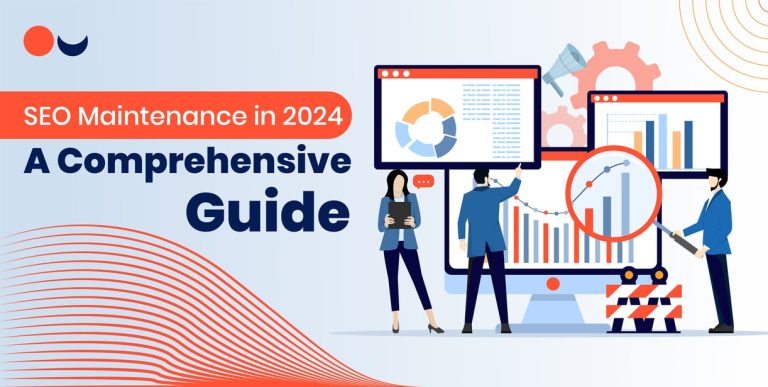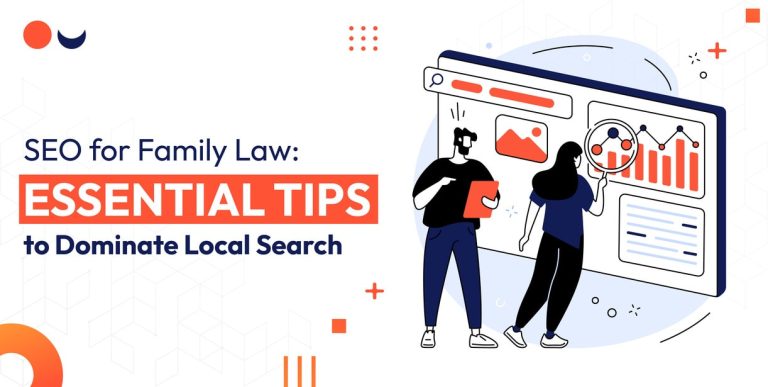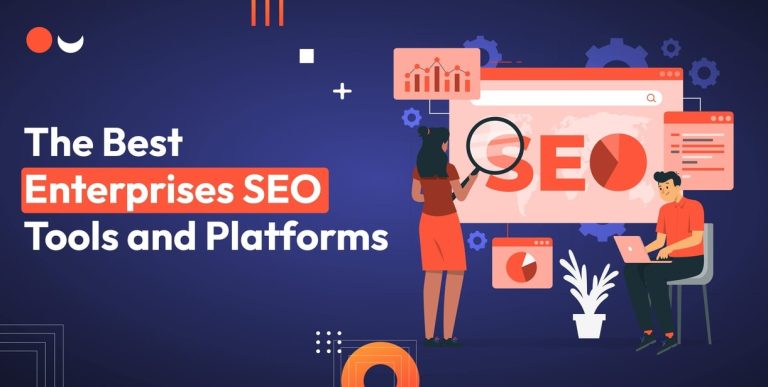Search Engine Optimization (SEO) has been around for decades, but it continues to evolve and become increasingly important in today’s digital landscape. With millions of websites vying for attention on search engines like Google and Bing, having a solid understanding of SEO can make all the difference in attracting and retaining customers.
As we move into 2023, the world of SEO is poised for even more growth and change. The way people search for information online is evolving, and search engines are constantly updating their algorithms to keep up. That’s why there’s never been a better time to become an SEO expert.
But where do you start? In this blog post, we’ll explore the basics of SEO, the skills you need to develop, the tools of the trade, and the steps you can take to become a thought leader in the industry. Whether you’re just starting out or looking to take your SEO knowledge to the next level, this guide will help you become an SEO expert in 2023 and beyond.
What is an SEO Expert?
A specialist in improving websites and online content to rank better in search engine results pages is known as an SEO expert (SERPs). SEO experts typically have expertise in keyword research and optimization, on-page optimization, content creation and optimization, link building SEO, technical SEO, and local SEO.
The Basics of SEO
The practice of improving a website or online piece of content for search engine results pages is known as search engine optimization (SEO) (SERPs). The goal of SEO is to make it easier for search engines to understand the content on a website or page and to make it more relevant to the user’s search query.
The History of SEO
SEO has been around since the early days of the internet, but it has evolved significantly over the years. In the early days, SEO was focused mainly on keyword stuffing and other tactics to manipulate search engine algorithms. However, as search engines have become more sophisticated, so too has the practice of SEO.
Also Read: 8 Key Benefits of SEO for Businesses in 2023
The Different Types of SEO
SEO comes in a variety of forms, each with a specific goal in mind:
Organic SEO
This is the process of optimizing a website or page to improve its ranking in organic (unpaid) search engine results. Organic SEO includes both on-page and off-page optimization.
Local SEO
This is the process of optimizing a website or page to improve its visibility and ranking in local search results. Local SEO services includes optimizing for location-specific keywords, building local citations and links, and managing your Google My Business listing.
Technical SEO
This is the process of optimizing a website’s technical infrastructure to make it easier for search engines to crawl and index the site. Technical SEO includes optimizing website speed, fixing broken links, and implementing schema markup.
Pathway of becoming an SEO Expert
To stand out from the competition and emerge as an expert you must have exceptional SEO expertise. This is where you need to understand Search Engine Algorithms to boost your capabilities. Here are some important things to note down.
Understanding Search Engine Algorithms
Search engine algorithms are complex systems that determine how websites are ranked on SERPs. Understanding how search engines work and what factors they consider when ranking websites is key to effective SEO.
Keyword Research and Optimization
Keyword research is the process of identifying the keywords and phrases that people use to search for content related to your business or industry. Once you’ve identified your target keywords, you can optimize your website and content to rank for those keywords.
On-Page Optimization
On-page optimization refers to the process of optimizing the content on a website or page to make it more relevant to search engine algorithms. This includes optimizing page titles and meta descriptions, using header tags, and optimizing page content.
Off-Page Optimization
Off-page optimization refers to the process of building backlinks to a website or page from other reputable websites. Backlinks are one of the most important factors in search engine ranking, and building a strong backlink profile is essential to effective off-page optimization.
Technical SEO
Technical SEO includes optimizing the technical infrastructure of a website to make it easier for search engines to crawl and index the site. This includes optimizing website speed, fixing broken links, and implementing schema markup.
In the next section, we’ll explore how to develop your skills as an SEO expert.
The Demand for SEO Experts
Typical SEO experts are highly in demand when we see the digital landscape. They are the pillars for generating revenue and making your brand be on top of the competition and thus, they are highly demanded.
If you wish to become a search engine optimization expert, it is important to track down the following tips and emerge as a better professional.
Becoming an SEO expert takes time and dedication. Here are some guidelines for improving your skills:
Stay Up-to-Date with Industry Changes
Search engine algorithms are constantly evolving, and keeping up with the latest changes and trends is crucial to effective SEO. Follow industry publications and blogs, attend SEO conferences and webinars, and stay engaged in online communities to stay up-to-date with the latest developments.
Network with Other SEO Experts
Networking with other SEO experts can be a great way to learn and stay up-to-date with industry changes. Join online communities like Reddit or LinkedIn groups to connect with other SEO experts and share ideas.
Build Your Own Website
Building your own website is a great way to practice SEO techniques and test out different strategies. It can also give you a better understanding of how search engines work and what factors they consider when ranking websites.
Practice on Test Websites
If you don’t have your own website, you can still practice your SEO skills on test websites. There are several free test websites available online, like Google’s Test My Site, that allow you to experiment with different SEO services techniques and see how they affect your search engine ranking.
Join an SEO Community
Joining an SEO community can be a great way to connect with other experts and stay up-to-date with industry trends. There are several online communities available, like Moz’s Q&A forum, where you can ask questions, share ideas, and get feedback on your SEO strategies.
In the next section, we’ll explore the tools of the trade that every SEO expert needs to know.
Tools of the Trade
To be an effective SEO expert, you need to have a good understanding of the tools and technologies used in the industry. Here are some of the most important tools that every SEO expert needs to know:
Google Analytics
Google Analytics is a free tool that allows you to track website traffic and monitor user behavior. It provides valuable insights into how users interact with your website, which can help you optimize your content and improve your search engine ranking.
Google Search Console
Google Search Console is a free tool that allows you to monitor your website’s performance in Google search results. It provides insights into how Google crawls and indexes your website, and can help you identify and fix any issues that may be impacting your search engine ranking.
Keyword Research Tools
Keyword research tools, like Ahrefs, SEMrush, and Moz, allow you to identify and analyze the keywords and phrases that people use to search for content related to your business or industry. These tools provide valuable insights into search volume, keyword difficulty, and other important metrics that can help you optimize your content for search engines.
Backlink Analysis Tools
Backlink analysis tools, like Ahrefs and Majestic, allow you to analyze your website’s backlink profile and identify opportunities to build new links. These tools can also help you monitor your competitors’ backlink profiles and identify potential link building opportunities.
Content Optimization Tools
Content optimization tools, like Yoast SEO and SEMrush, provide insights and suggestions for optimizing your website and content for search engines. These tools analyze your content for factors like readability, keyword usage, and meta tags, and provide recommendations for improvement.
Technical SEO Tools
Technical SEO tools, like Screaming Frog and Google Page Speed Insights, allow you to analyze and optimize the technical infrastructure of your website. These tools can help you identify issues like broken links, slow page speed, and other technical factors that may be impacting your search engine ranking.
In the next section, we’ll explore some of the key strategies for effective SEO.
Common Mistakes to Avoid
While there are many strategies that can help improve your SEO, there are also some common mistakes that can hinder your progress. Here are some of the most typical errors to prevent:
Over-optimization
Over-optimizing your content for search engines can actually harm your search engine ranking. Stuffing your content with too many keywords or building too many backlinks too quickly can be seen as spammy by search engines, which can result in a penalty or even a ban.
Ignoring User Experience
Search engines are becoming increasingly focused on providing users with a positive experience, which means that factors like page speed, mobile-friendliness, and usability are becoming more important. Ignoring these factors can harm your search engine ranking and turn off potential visitors to your website.
Duplicate Content
Duplicate content, or content that appears in multiple places on the internet, can harm your search engine ranking. This can occur if you copy content from another website or if you have multiple versions of the same page on your website. It’s important to ensure that all of your content is original and unique.
Neglecting Local SEO
Neglecting local SEO might be expensive if you run a local firm. Optimizing your website and content for local search can help attract more traffic from your local area, which can result in more business and higher profits.
Staying Up-to-Date with SEO Trends
SEO is a constantly evolving field, and it’s important for SEO experts to stay up-to-date with the latest trends and best practices. To keep current, consider the following advice:
Follow Industry Experts and Blogs
Following industry experts and blogs, such as Moz, Search Engine Journal, and Search Engine Land, can provide valuable insights and updates on the latest SEO trends and best practices.
Attend Conferences and Events
Attending SEO conferences and events, such as MozCon and SMX, can provide opportunities to network with other professionals in the industry and learn about the latest trends and strategies.
Participate in Online Communities
Participating in online communities, such as SEO-related forums and groups on social media platforms like Facebook and LinkedIn, can provide opportunities to connect with other SEO experts and share knowledge and insights.
Experiment and Test
Experimenting with new strategies and testing their effectiveness can help you stay ahead of the curve in SEO. Testing can involve A/B testing different versions of your website or content, or testing new tactics for link building or keyword optimization.
Learn from Analytics
Analyzing your website’s analytics data can provide valuable insights into how your website is performing in search engines and how users are interacting with your content. You may spot opportunities for improvement and modify your SEO approach by keeping an eye on these indicators.
By staying up-to-date with the latest SEO trends and best practices, you can ensure that your SEO strategy is effective and competitive in the ever-changing landscape of search engines.
Also Read: Affordable SEO Services – A Comprehensive Guide.
We’ll list the main lessons to be learned from this blog article in the concluding section.
Key Takeaways
In summary, becoming an SEO expert in 2023 involves:
· Understanding the basics of SEO, including how search engines work, the importance of keywords, and on-page optimization.
· Developing a comprehensive SEO strategy that includes keyword research and optimization, on-page optimization, content creation and optimization, link building, technical SEO, and local SEO.
· Avoiding common SEO mistakes, such as keyword stuffing, ignoring mobile optimization, and neglecting to optimize for local search.
· Staying up-to-date with the latest SEO trends and best practices by following industry experts and blogs, attending conferences and events, participating in online communities, experimenting and testing, and learning from analytics.
By following these key principles and strategies, you can become a successful SEO expert in 2023 and beyond. Remember, SEO is a constantly evolving field, so it’s important to stay flexible and adaptable to changes in search engine algorithms and user behavior. With a strong understanding of SEO best practices and a commitment to staying current, you can achieve great success in the exciting and dynamic world of search engine optimization.
Frequently Asked Questions (FAQs)
What is an SEO expert?
An SEO professional is someone who specializes in optimizing websites and online content to rank higher in search engine results pages (SERPs). SEO specialists frequently have knowledge in link building, technical SEO, local SEO, content production and optimization, keyword research, and on-page optimization.
How long does it take to become an SEO expert?
Becoming an SEO expert requires a combination of education, training, and practical experience. Depending on your background and the resources available to you, it could take anywhere from a few months to several years to develop the skills and knowledge necessary to become an SEO expert.
How much do SEO experts make?
The salary for SEO experts can vary widely depending on factors such as location, experience, and the size of the company they work for. According to Glassdoor, the average salary for an SEO expert in the United States is around $66,000 per year, with salaries ranging from $42,000 to over $100,000 per year.
Are there any certifications or courses that can help me become an SEO expert?
Yes, there are a variety of certifications and courses available that can help you develop your skills as an SEO expert. Some popular options include the Google Analytics Individual Qualification (IQ), the Google Ads certification, and the HubSpot Inbound Marketing certification. Additionally, many universities and online learning platforms offer courses in SEO and digital marketing.







